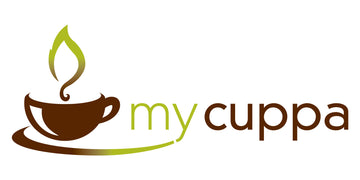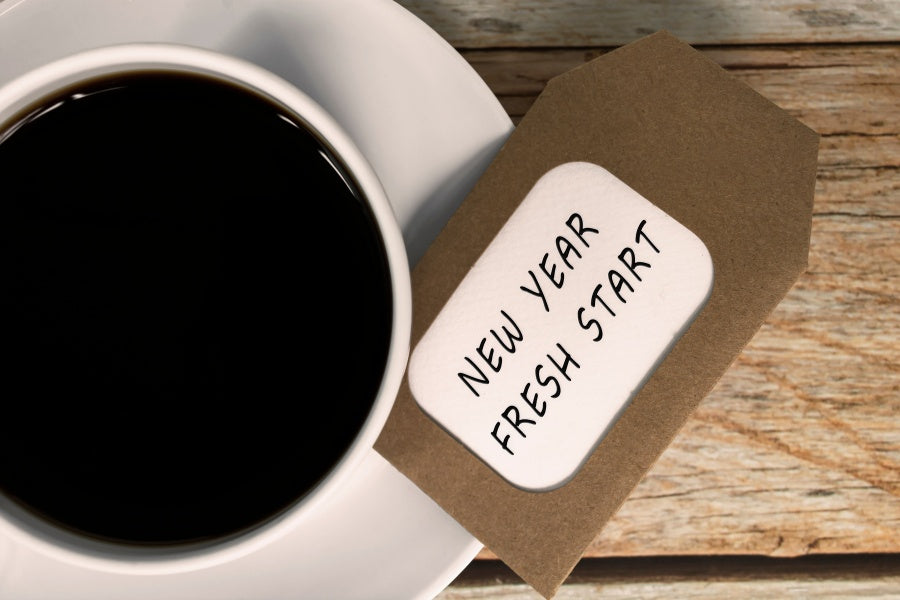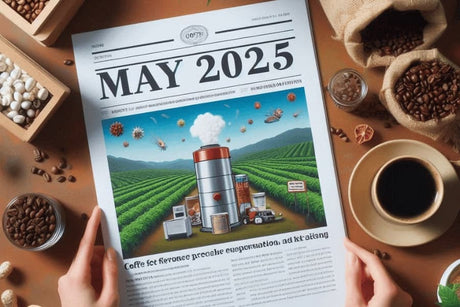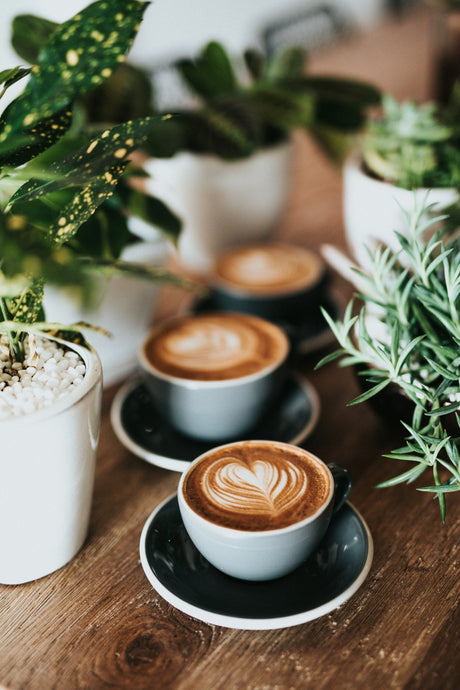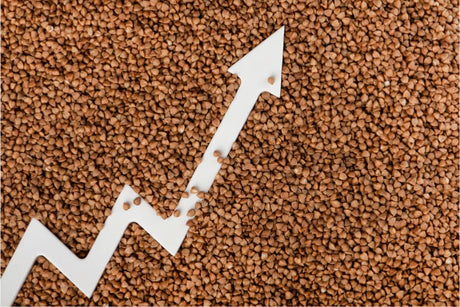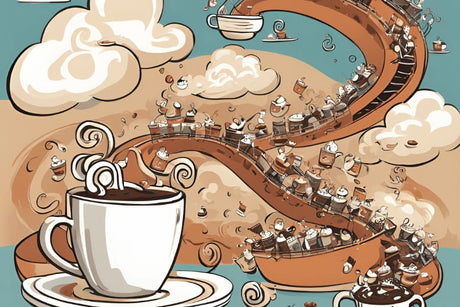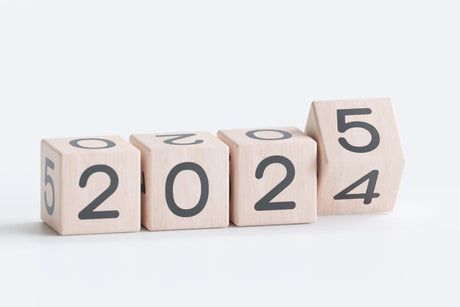“Better three hours too soon, than one minute too late." - William Shakespeare
mycuppa January 2022 Newsletter
This month, we have made some changes as we say goodbye to a handful of our everyday coffee in the store, victims of the "difficult" ongoing sourcing problems that, you guessed it, are caused by this annoying pandemic and supply chain breaking.
Holding an extensive array of coffee choices now makes no sense, so we have trimmed back half a dozen coffees with potentially a few more facing the chop in the coming months if we can't replace depleted holdings so that it will depend upon the conditions around supply. We are hopeful things can't get much worse than they are now.
Also impacted this month is our hugely popular Secret Label, with so many coffee beans stranded either at origin or in boats floating up and down on the ocean. But don't worry; we have something extra excellent locked and loaded in its place as we look forward to Secret Label returning next month.
Every day becomes more frustrating when dealing with the ludicrous responses of no, nothing, delayed, waiting, don't know, can't explain, never happened before, etc. Of course, you only discover this at the last moment when asking why something hasn't arrived yet.
It is not just coffees being "stonewalled"; even our primary Australian-made packaging has become a frustrating commodity. After waiting for 50 days, the warehouse, only 11km away, could finally provide simple cartons made from domestically sourced cardboard sheets.
Apparently, for some suppliers, there's a convenience in blaming delays on the pandemic. Yet, it was only 12 months ago we were waiting barely five days for the same cartons from the same supplier under much more rigid restrictions. Makes you wonder.
There are many genuine difficulties in sourcing and worsening labour shortages, so we are not claiming every delay is bogus. Still, this pandemic is generating a costly tax that's making most things dearer into the future.
In place of our eponymous Secret Label is a unique lot we had stashed away like Darryl Kerrigan's "This is going straight to the pool room ". It's like the equivalent of a bottle of Grange in your cellar.
A fantastic coffee of immense pedigree – from the birthplace of coffee in Ethiopia comes a rare and exotic heirloom varietal in the Bensa district, a naturally processed micro-lot developing intense fruit sweetness.
With a super-clean, fruity and well-balanced cup profile, we love the soft and complex acidity, total, syrupy body and rich textures from the holy grail in coffee flavours - "candied blueberries".
As a black, it's off the scale in deliciousness, and for milk drinkers, it pairs the sweet fruits with chocolate and caramel.
This month's blog looks at why many of the "high-end" coffees will essentially disappear from the market – but the good news is it should only be temporary.

Ethiopia Bensa
With so many coffees stranded at origin or taking longer in transit, the plans for January's Secret Label have yet to arrive, so we can't package up our month's surprise offering.
Instead, we are featuring a fantastic coffee put aside for special occasions - an exotic heirloom varietal from Ethiopia Bensa.
This coffee is a naturally processed lot, dried in the sun to enhance sweetness and fruitiness.
We have loved candied blueberries, syrupy body and delicious chocolate and caramel finish.
For a limited time only.

Why are high-end coffees disappearing - it's only temporary.
By now, everyone has heard of the problems plaguing the global coffee industry - not unlike many other industries around the world where demand outstrips supply, or we should say demand outstripping the forecast of supply because, in some instances, these are rubbery numbers being bent in some extreme directions to suit the narrative.
Surprisingly, the story about coffee has a few more elements beyond the most obvious explanation of the pandemic; in fact, the pandemic is just a part of the existing problems in the coffee supply chain.
True, sea freight and container shortage debacles ongoing for the last 12 months (and likely to continue for another year) remain a significant factor, so too is the shortage of labour to pick and process the cherries from the trees, often a transient workforce just like seasonal fruit and veggie pickers and in places like Central America, these workforces had historically moved across borders.
However, the story of coffee goes a bit deeper, with coffee farmers doing it tough for many years before the pandemic struck. Throw in a few severe weather events, a nine-week shutdown in the #2 arabica producer and escalating prices from futures traders worried about shortfalls, and we have a situation today where the cost of coffee is around $5 more per kilo than the same time last year.
Ironically, the price increases have little to do with increasing levels of coffee consumption, which typically tracks in the sub 3-5% growth rates per annum. Perceptions of reduced supply, not demand, drive the forecasted impact. Even the major frost events in Brazil in late June are still accurately quantified until the current rainy season finishes, so we've had almost six months of escalated prices based upon largely hypothetical scenarios.
Due to ongoing shortages in Brazil and Colombia, even the lowest qualities are being sold at high prices. Coffee farmers are abandoning their focus on high-end quality lots and chasing a more manageable volume of essential attributes.
For a coffee farmer to produce the high-grade speciality lots we and other quality-focused companies are interested in sourcing, the coffee farmer must spend a lot more time, energy and cost in "managing" the lots that command much higher prices. The care of the coffee trees, picking, processing, and grading take 2 to 3 times longer.
With the surging prices of coffee, the roasting businesses are likely to look at alternative qualities to maintain margins between retail or wholesale and the escalating raw coffee.
A relaxing of strict sourcing standards is about trying to survive in a rising market where the lag between the higher input cost and the adjustment of selling prices can sometimes be measured in months, unlike other food commodities or the price of energy and fuels that change almost immediately at the first sign of news.
As demand for high-end coffee lots diminishes, the import brokers will also jump to lower-grade lots, thinking these lower-quality lots are far easier to sell in the elevated market.
So, demand for the high-end lots effectively falls off the end of a cliff face. When you add farmers disinterested in wasting time developing expensive lots, you have the recipe for a dramatic fall in demand and supply. Farmers can obtain the same or higher prices for lower grades today, requiring a fraction of the effort and additional expense.
Unfortunately, when it comes to the quality end of the coffee market, there's still so much smoke and mirrors used in the marketing that sellers will hide this internal change or switch to lower qualities.
As price seems to be the primary tool many sellers use to create a perception of quality, it's never a reliable indicator of quality because, quite frankly, many selling prices are determined or governed by what a seller may think they can "get away with".
A classic example of this is many coffee companies selling Brazilian coffees for the same price as Kenyan when Kenyans are at least twice as expensive to purchase in the raw state.
Today, the available range of high-end quality raw coffee lots is barely 15% of the regular pre-pandemic periods.
That means slim pickings and an ever-present risk of paying too much for an over-hyped coffee that could be "old" or "baggy" as it's been sitting unloved in an importer warehouse for way too long and losing its "shine" (yes, raw coffee degrades over time but not at the same rapid rate as roasted coffee).
So the rock star coffees we love to offer, those diamonds that shine so brightly, are becoming more challenging to source and ridiculously expensive. The expense will not discourage us, but availability certainly does.
These conditions will prevail in the short term; although we don't own a crystal ball, it's fair to say that whilst global coffee pricing remains at 10-year highs, farmers are less interested in wasting time developing high-end lots.
Coffee roasters may continue to sit on their hands by refusing to pay such expensive premiums, and import brokers are less inclined to source high-grade lots—a triple jeopardy.
When the global coffee market finds a comfortable balance where farmers generate a healthy return and coffee roasters can operate within their margin constraints, we can expect more high-end specialty lots to emerge. Still, the demand is certainly not there today, despite all the misleading marketing by sellers on the retail side trying to hide the truth from consumers with their "nothing to see here folks, everything's OK".
It might be 6 to 8 or, at most, 18 months until the peak of the rising market has subdued and the herd moves to better qualities because nobody enjoys living on the equivalent of baked beans and sausages forever.
